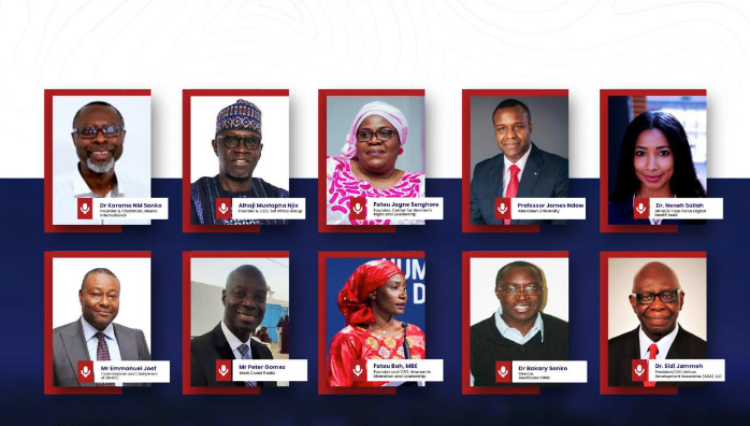Gambiaj.com – (BANJUL, The Gambia) – A nationwide study on ethnicity and tribalism has found that Gambians overwhelmingly hold positive views of other ethnic groups, even as a “loud minority” is perceived to be stoking division—prompting calls for education, dialogue, and intermarriage to strengthen unity.
Published as a final report on August 12, 2025, the study, “Ethnicity and Tribalism in The Gambia — Survey & Webinar Findings,” was initiated and funded by Heeno International (HI) and presented alongside two webinars earlier this year to discuss the findings and rally public commitment to social cohesion. HI stresses that the opinions in the document are those of the survey and webinar participants, not of the organization or research team.
The mixed-methods survey—combining qualitative interviews with quantitative analysis—sampled approximately 9,907 people aged 15–64, using face-to-face interviews in local languages across all eight Local Government Areas: Banjul, Kanifing, Brikama, Kerewan, Kuntaur, Mansakonko, Basse, and Janjanbureh.
Key Findings and Proposed Solutions
Nationally, about 96.68% of respondents reported positive attitudes toward other ethnic groups, with only 3.32% expressing negative views.
By locality, positivity was measured at 96.84% (Banjul), 97.47% (Kanifing), 98.33% (Brikama), 89.16% (Kerewan), 96.25% (Kuntaur), 96.93% (Mansakonko), and 98.49% (Basse and Janjanbureh). The authors conclude that ethnic discord is being amplified by a small but vocal group.
While various communities reported being accused of tribalism “to varying extents,” the vast majority did not identify themselves as tribalists, with non-tribalistic self-reporting in the 90%+ range across responses cited in the report.
A significant share of respondents assigned responsibility for tribal tensions to politicians (34.32%) and to individual citizens (28.37%), underscoring both the political and social dimensions of the problem.
Demographically, the Mandinka/Jahanka community was the largest ethnic group in the sample, followed by Fula/Tukulor/Lorobo and Wolof; respondents skewed toward the 25–34 age bracket and represented diverse occupations from students and business owners to drivers, carpenters, and mechanics.
Across regions, respondents prioritized intermarriage, public sensitization, dialogue, and formal education as the most practical, long-term tools to curb tribalism. Local patterns varied— Banjul leaned toward sensitization and intermarriage, Kanifing toward intermarriage and formal education, and Brikama toward intermarriage and sensitization, while Basse and Janjanbureh emphasized sensitization and dialogue.
The report urges policymakers and political leaders to “prioritize national unity” and address root causes of division through inclusive governance and sustained public education.
Webinars Call for Unity
HI convened two virtual events to frame and disseminate the findings—March 1, 2025, to present the survey and March 11, 2025, to gather “Statements of Unity” from prominent Gambians at home and in the diaspora.
Speakers included NHRC Chair Emmanuel Joof, rights advocate Fatou Jagne Senghore, business leader Mustapha (Taf) Njie, health expert Dr. Neneh Sallah, academic Prof. James Ndow, and Imam Baba Drammeh, who emphasized that tribalism is forbidden in Islam.
HI Chair Dr. Karamo Sonko opened the discussions by recalling an earlier era when Gambians freely visited one another across ethnic lines, saying the study was motivated by a desire to restore that spirit and convert insights into action. Mamadou Alieu Jallow, the survey’s principal statistician, presented the methodology and topline trends.
The report concludes that tribalism exists and harms community life and politics but remains far from a majority sentiment. It calls for urgent, coordinated interventions—education, awareness campaigns, and inclusive policies—to “stamp out” a growing “virus” of disunity before it spreads.










